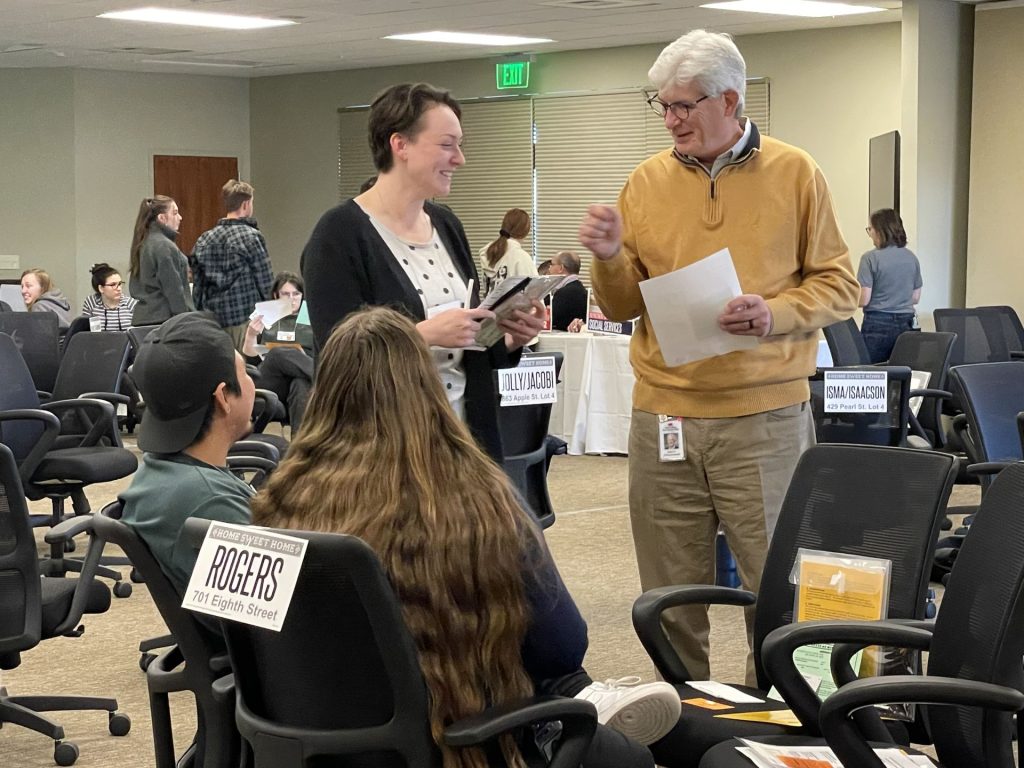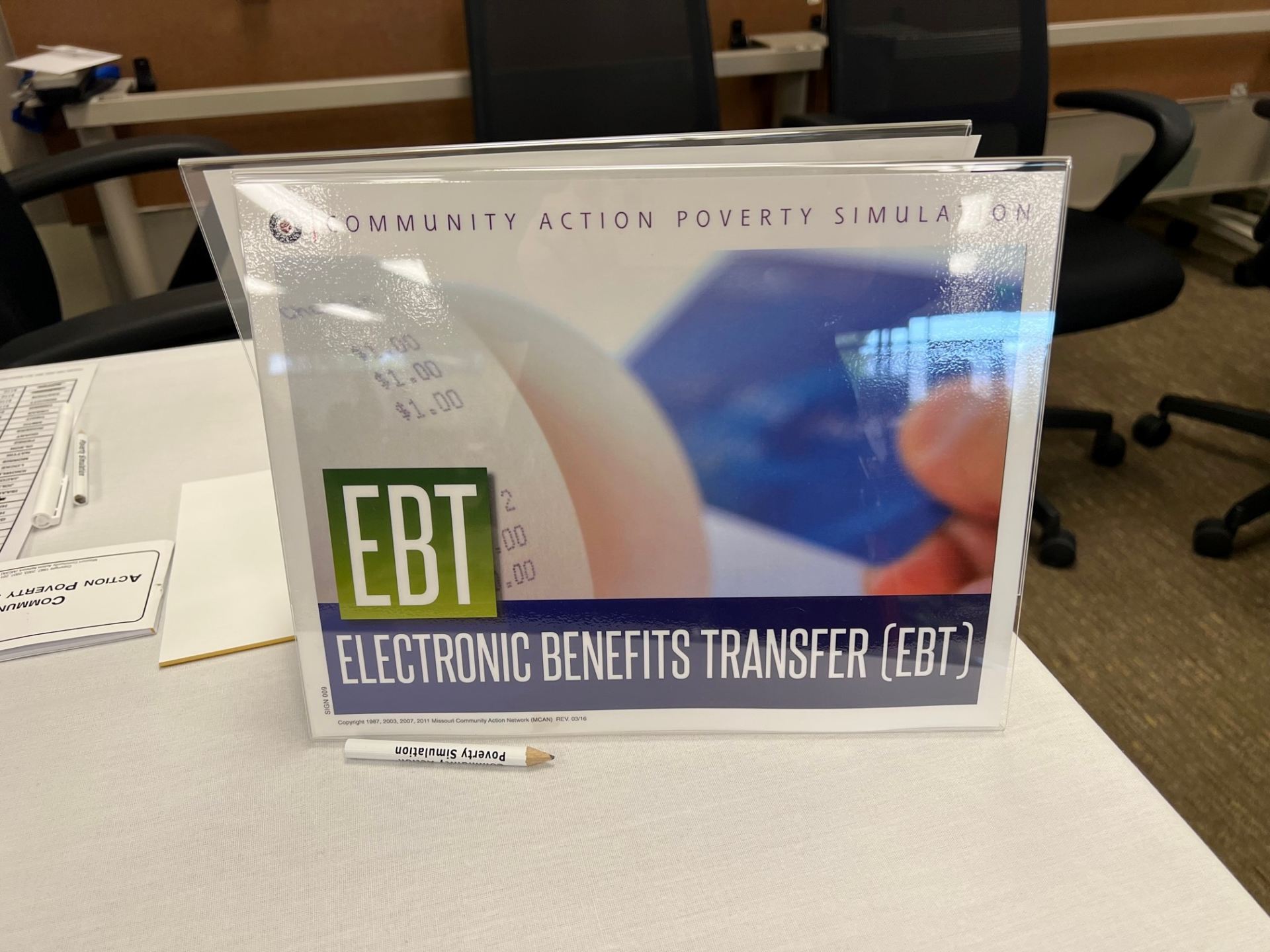The Community Action Poverty Simulation (CAPS)
Hosted by the Northwest Interprofessional Health Collaborative (NIHC), the Community Action Poverty Simulation (CAPS) took place on October 27. This simulation was designed to offer participants a glimpse into the daily struggles faced by those living in poverty. It was not limited to health sciences students; volunteers from local human service agencies, civic leaders, and community volunteers also took part in this impactful event.
Dr. Angela Stewart, the Executive Director of the NIHC, emphasized the importance of the CAPS program. “This program helps our future healthcare providers understand the complexities and frustrations of living in poverty day to day,” she said. “With a greater awareness of its impact, they will be able to more effectively address the impact of poverty on health and wellness in our community.”
Walking in the Shoes of the Less Fortunate
During the simulation, participants stepped into the shoes of low-income families. They took on various roles, including Temporary Assistance for Needy Families (TANF) recipients, disabled individuals, and senior citizens relying on Social Security. Their task was to navigate life with limited resources, attempting to provide for basic necessities and shelter within a restricted budget.
Over the course of four 15-minute “weeks,” participants encountered various challenges. They interacted with human service agencies, grocers, pawnbrokers, bill collectors, job interviewers, and more. These experiences provided invaluable insights into the daily hardships faced by those living in poverty.


Understanding the Reality of Poverty in Washington State
The simulation underscored the pressing issue of poverty in Washington State. According to a 2022 census, more than 763,000 residents in the state are living below the federal poverty level, with an additional 928,000 living just above the poverty threshold. This totals more than 1.6 million individuals in Washington who struggle to meet their basic needs.
Dr. Stewart emphasized, “This is the everyday reality of thousands of Washington residents. Understanding that reality will help us change it.”
Creating Awareness and Change
The Community Action Poverty Simulation (CAPS) offers a multi-faceted perspective on poverty and encourages participants to consider the potential for change within their local communities. Elaine West, the former executive director of the Missouri Community Action Network, which made the simulation available nationwide, highlighted the impact of CAPS. The simulation was designed to sensitize those who frequently deal with low-income families as well as to create a broader awareness of poverty among policymakers, community leaders, and others.
Taking Action
The Missouri Community Action Network, an association of community action agencies throughout the state, provides a range of services to low-income individuals and families. If you’d like to find out more about the poverty simulation, you can visit their website at www.communityaction.org.If you’re interested in participating in future poverty simulations or contributing to the ongoing effort to combat poverty, please contact the NIHC at ipe@pnwu.edu.

